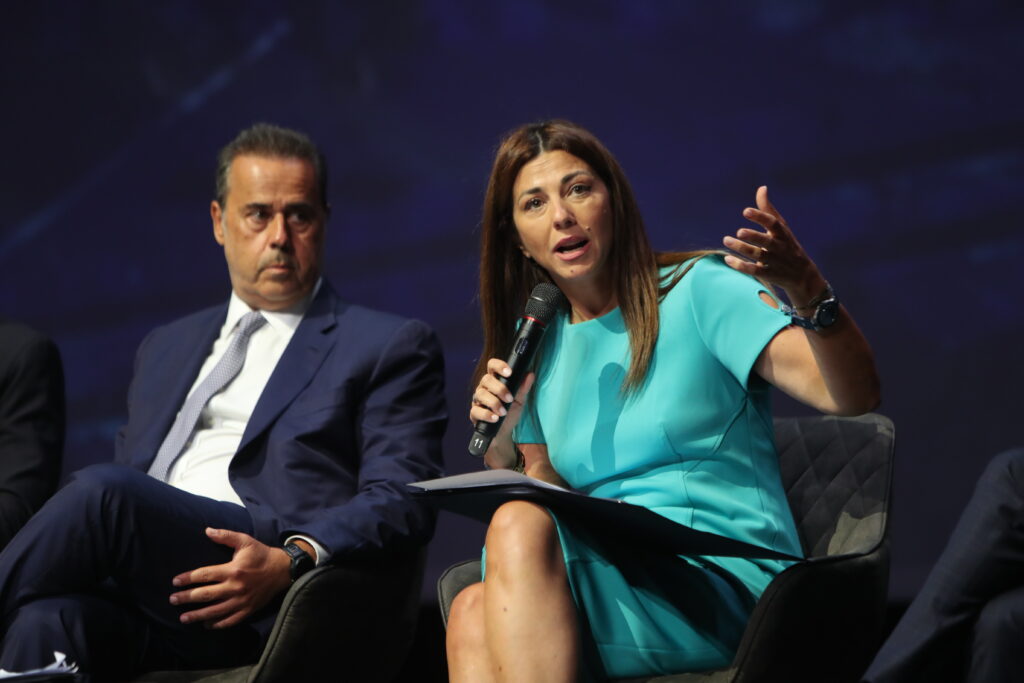“Permanent appointments are at the forefront of our major effort,” emphasized Education, Religious Affairs and Sports Minister Sofia Zacharaki, speaking at an event titled “National Strategy for Regional Development – Thessaloniki Projects” at the Concert Hall, with Prime Minister Kyriakos Mitsotakis as the keynote speaker. “We are starting (the new school year) with much more staff, permanent staff, as 10,000 appointments were made during the summer and this is due to the effort made by many education officials, starting with Kyriakos Pierrakakis and earlier with Niki Kerameus, and we have now reached over 48,000 appointments, with the 10,000 we added this summer,” the minister noted, clarifying that “we emphasized mainly primary education, special education, psychologists and social workers,” as “it’s not just the teacher in the classroom, but other specialties that contribute and help so that children can be strengthened not only in the thematic part, what they learn, how they learn it, but also how we can support them in more difficult times.”
Zacharaki on school staffing
Specifically regarding school staffing in Thessaloniki, Ms. Zacharaki clarified that “this year we have 238 new permanent teachers – 75 in primary education, 163 in secondary education.” “Since 2019, we have many appointments in both Western and Eastern Thessaloniki, 29 in primary and 123 in secondary education in Eastern Thessaloniki, 236 appointments in primary education in Western Thessaloniki, 490 in secondary education in Western Thessaloniki. We have a very large increase in psychologists, social workers and a major effort was made to strengthen schools in digital learning. Thousands of interactive boards and robotics sets, which from this year can be utilized in the classroom, in public schools, without neglecting training, as this year throughout Greece we will reach training for approximately 150,000 teachers, to learn how to use all this equipment,” the minister stated.
Regarding covering gaps that arise at the beginning of the school year, Ms. Zacharaki noted that “we always turn to substitute teachers, we have a particular need for parallel support and we give special emphasis there, as well as to integration classes, where this year there was a major expansion in establishment with a very large number given to Thessaloniki, the digital learning component with interactive boards and the new skills children will learn with robotics and the economics subject, which will be introduced in third grade of gymnasium.”
Regarding school building infrastructure, Ms. Zacharaki observed that “many of our buildings are old and worn, they certainly need renovation and structural changes, many need energy upgrades, others need more functional changes,” noting that through the “Marietta Giannakou” program, in the greater Thessaloniki area, 78 schools are being renovated, 49 of which are located in the city center.
“The Marietta Giannakou program will continue and over the years amounts will be added so that every year we can feel the joy we feel this summer, where while others may be on vacation, people and especially local contractors are reconstructing our schools, so they will welcome children in a brighter environment with sports facilities that have been renovated, with toilets that have been renovated and made accessible,” the minister said, concluding with reference to “a basic motto that our President has given, that no one should feel left behind, whether teacher or child, wherever they were born, wherever they need to go to school, this is something that guides our every move.”




